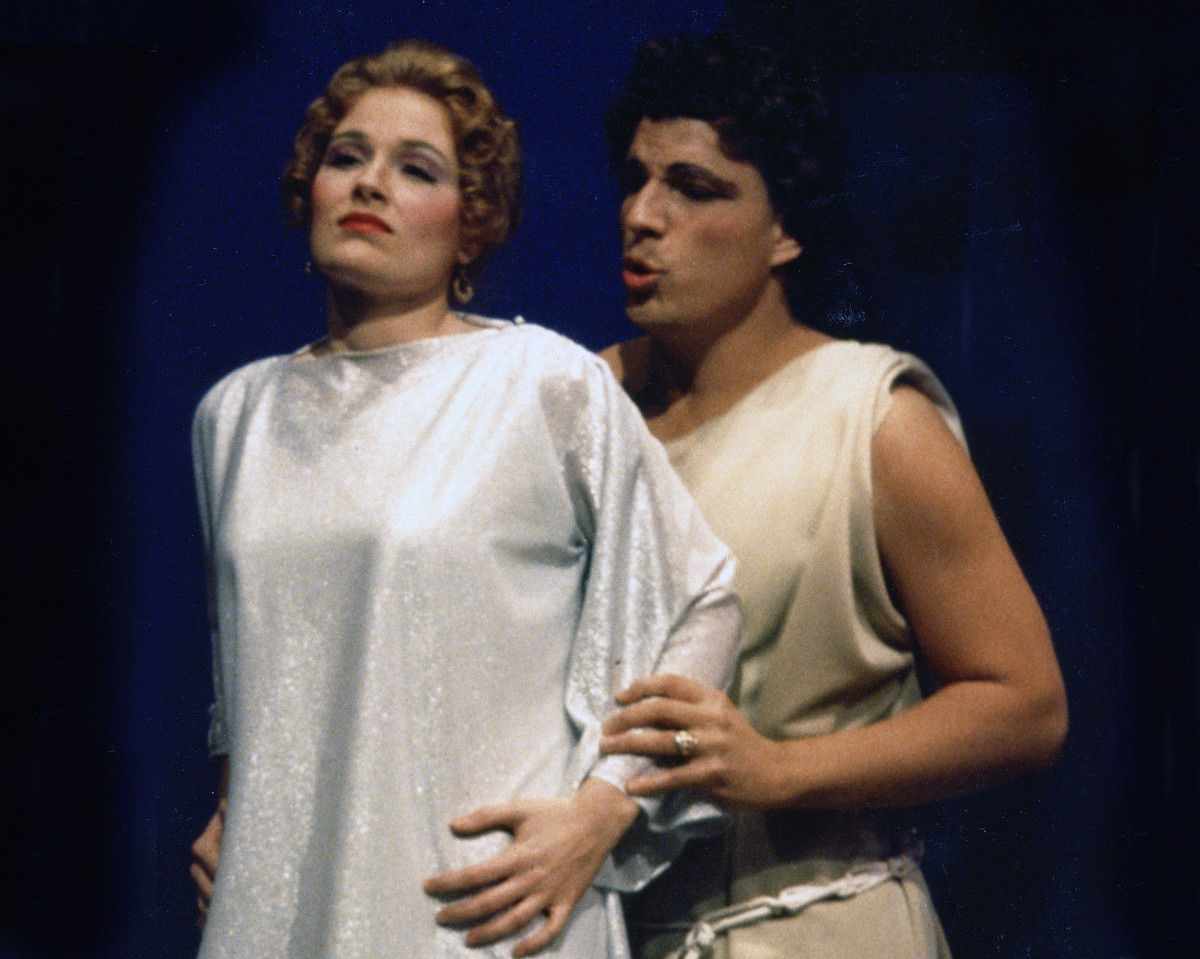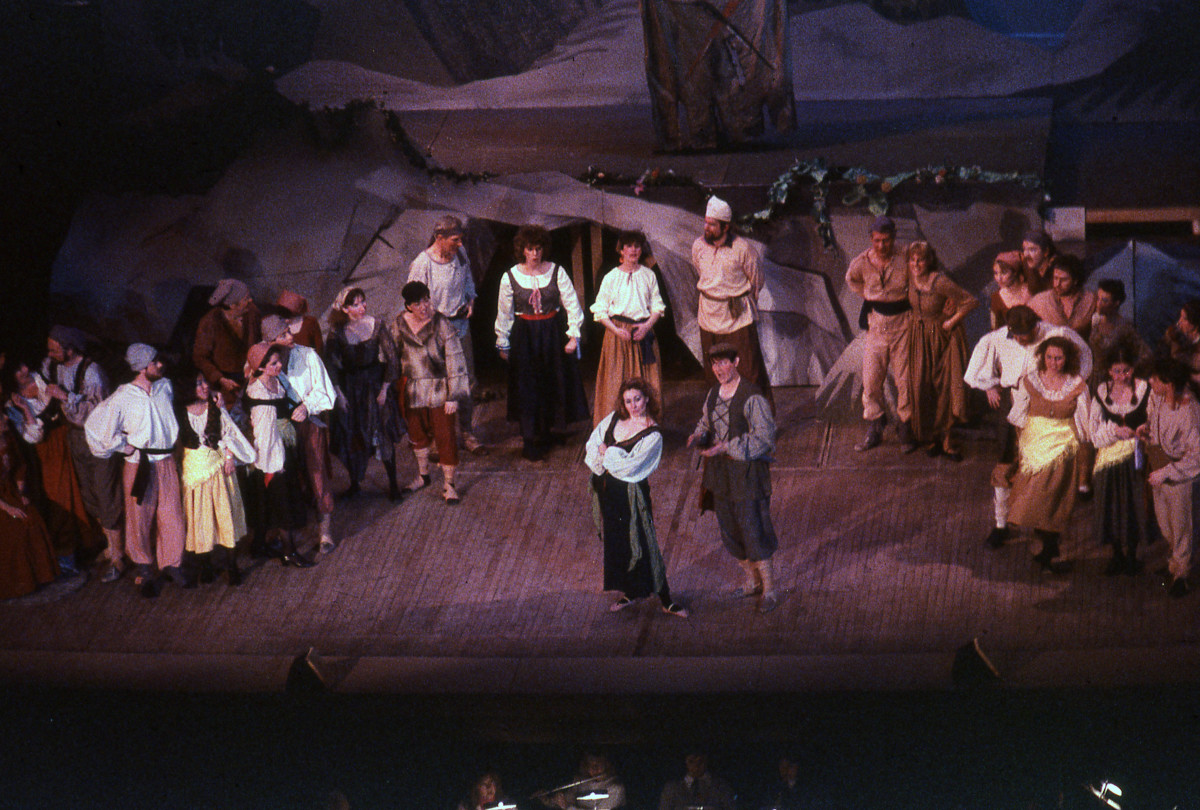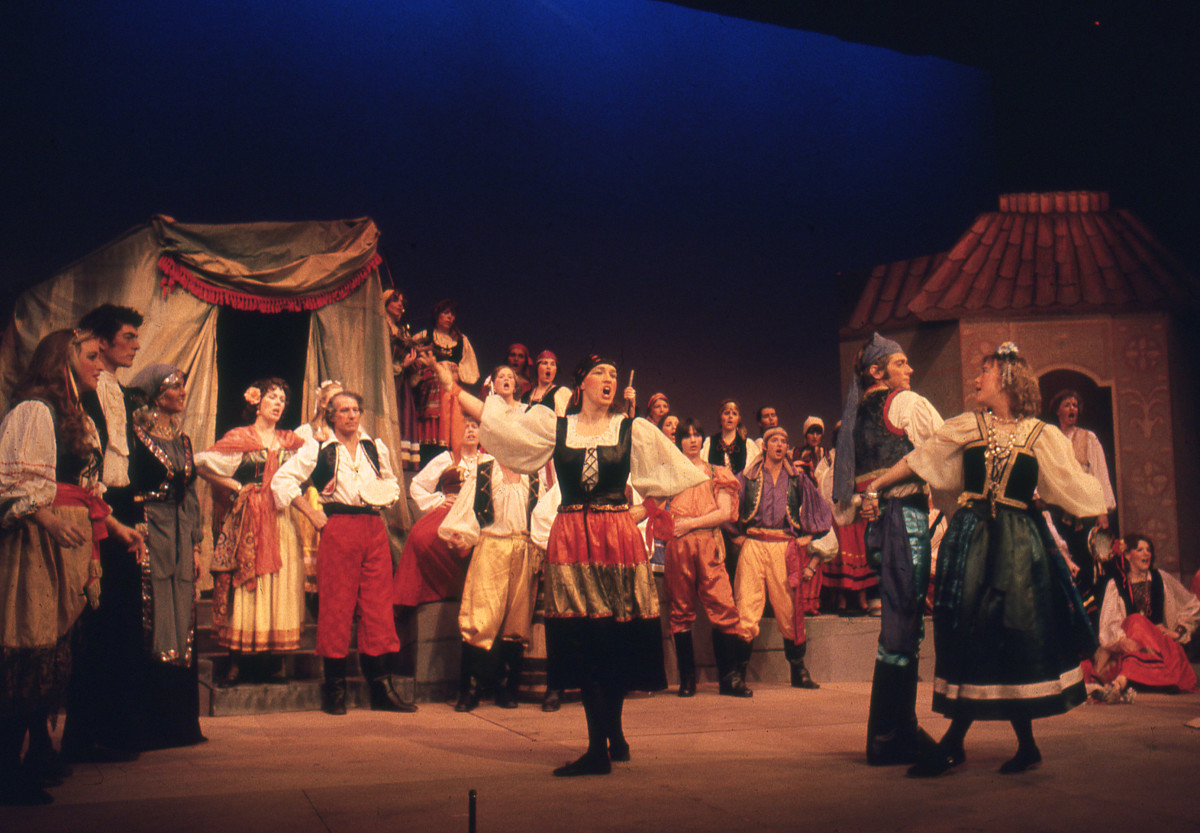Kevin Clarke
Operetta Research Center
1 November, 2018
Among the various US-American operetta companies, the Comic Opera Guild continues to draw international attention through recordings that offer a chance to hear very rare titles, and some not-so-rare ones in English versions. We spoke with Tom Petiet, the managing director of the Guild, about how he sees the genre operetta, the competition with other US companies such as Ohio Light Opera and Light Opera of New York, and what impact the latest trends in Germany with regard to a jazz operetta revival have for him. What becomes immediately clear is that there is quite a wide gap between the offerings of Komische Oper Berlin, Gorki Theater, and Tipi am Kanzleramt, and Comic Opera Guild on the other side of the Atlantic. Luckily, everyone can decide for him- and herself was he/she prefers. And luckily, all the alternative operetta options are easily available as CDs, online broadcasts, and DVDs.

Offenbach’s “La belle Hélène” in a Comic Opera Guild production, Judy Gray as Helene and Samuel Roelofs as Paris. (Photo: Comic Opera Guild)
The Comic Opera Guild is based in Michigan and was founded in 1973. Who had the idea to start such a company – and why in 1973?
It was my idea to found the company, and I became the Managing Director, the post I have held since then. My main function, per the constitution, is to act as producer, and manage the operation of the company. We have a board of 11 individuals. The idea came about because as an undergrad at the University of Michigan, I had been a member of the University of Michigan’s Gilbert and Sullivan Society (UMGASS) and continued after graduation. Having done most of the G&S repertory, I wanted to explore the rest of the operetta repertory, and UMGASS was not likely to do it. With three other people from UMGASS, the Guild was formed.
On your website you say you want to acquaint audiences with the “unique repertory of comic operas and operettas.” What’s your definition of a comic opera, and what does a comic opera have to do with an operetta? Do you define operettas à la Richard Traubner (“gaiety and Schmalz”) or are you emphasizing the kinkier and more radical early operetta approach of Offenbach and Hervé?
To me, a comic opera is sung throughout (Barber of Seville), and an operetta contains dialog (La Perichole). My favorite composer has always been Offenbach, as I prefer the satire one also sees in Gilbert and Sullivan. Lehar’s Merry Widow also contains satire, probably because it was based on a French play. When we have done other Viennese operettas, our “versions” have always contained something to satirize amid the “schmaltz.” To my taste, operetta is an ideal medium, combining classical singing, drama, comedy, orchestral sophistication and dance.

Offenbach’s “Les Brigands” n a Comic Opera Guild production. (Photo: Comic Opera Guild)
You mention on your homepage that “operetta” is an imported genre, brought to the USA from Europe. Some of the early reviews of operetta performances suggest that the genre was presented in a rather scandalous way in the 1870s in New York City. One critic famously wrote about Offenbach’s Genevieve de Brabant: “It’s the most revolting mass of filth that has ever shown on the boards of a respectable place of amusement in this city.” Can audiences of the Comic Opera Guild expect that kind of ‘authentic’ performance, or are you striving for something else?
We try to stay true to the original spirit of the work, if not the actual words. Our English adaptations are “versions” rather than strict translations for several reasons; firstly, European or dated jokes don’t go over in America, and secondly most of the librettists were not as good as the composers (notably Victor Herbert and Strauss). I think the reason for that review of Genevieve was that America was not as sophisticated as Paris at the time, and people were used to the tamer English or German repertory that was brought over. What was scandalous in 1880 is pretty tame today.
Well… you could argue about that!

President Grant and Jim Fisk watch “La Périchole” at the Fifth Avenue Theater in New York, 1869. As shown in the “Illustrated Police Gazette.” (From: Laurence Senelick, “Jacques Offenbach and the Making of Modern Culture,” 2018)
How do you see the US-American relationship with operetta since 1973? Who performs it for who? What recordings are in circulation and being lauded (by who)? Are there any operetta stars currently around?
Unfortunately, operetta does not get much respect in the U.S. Opera companies often look down on anything other than Die Fledermaus, and when they try to do an operetta, they aren’t very good at it. We run the Harold Haugh Light Opera Vocal Competition, in which singers must compete in the realm of light opera. It’s clear from that that most classical singers are not well schooled in operetta, so we try to make them realize that the genre is perfect for young voices, teaches them to act and can provide show-stopping audition pieces. Ohio Light Opera, which operates in the summer in Wooster, Ohio, has done very well in operetta, but lately, they have had to do more musicals as the operetta audience has begun to age out. There have been American singers, like Frederica von Stade, who have performed operetta at a high level, but mostly with European companies. We like to think that our versions can bring the shows back to the boards in this country.
The Comic Opera Guild itself is recording many shows, anything from Victor Herbert to Jacques Offenbach to Sousa and even Jakobowski. Who do you cast for these recordings? Are they in English? And who are your customers?
We cast from a large talent base in the Ann Arbor, Mi and the southeastern Michigan area. We have a top music school at University of Michigan, and also draw soloists from Michigan State and other schools. All our shows are done in English. We create English version of European shows, and modify scripts from American shows when necessary for quality or time constraints. We sell recordings to music libraries, as well as collectors in America, England and Germany.
The Ohio Light Opera and Light Opera of New York are also releasing their operetta productions on CD. Is such competition good for business and good for operetta? What’s your unique profile in presenting the genre, as opposed to OLO and LOONY?
I think anything that brings operetta to a wider audience is good for everyone. We all operate differently. OLO is supported by the College of Wooster; we do not have University of Michigan support, which makes budgets tighter. OLO, based on having seen their shows, does not make a point to improve the books but uses straight translations. I’m not aware of what LOONY does with shows other than those by Victor Herbert.
Recently, there’s been a lot of new interest in the jazz operettas of the 1920s and 30s, Paul Abraham and Oscar Straus titles among them, but also cheeky cabaret operettas by Mischa Spoliansky were put back on, successfully, in Berlin. Does this operetta boom from Berlin have any impact of the US scene, or on your company?
To date, we have not explored this area at all. The Chocolate Soldier was on our radar, but we have not yet done it. We have done works from the 20s, but they are not jazz based.
You also offer performance material: who typically comes to you for such material? Who performs these ‘rare’ shows today around the United States, other than you?
We rent our show versions to companies all around the U.S. We applaud any companies who do operetta, as the genre needs to be brought back. Most of our customers are universities, such as University of Idaho, as operetta suits young voices. We have rented to small operetta companies such as the Victorian Lyric Opera Company in Washington D.C., as well as opera companies such as Opera Camerata in Washington, Opera Omaha in Nebraska and even Rockdale Opera in Australia.
Do theater critics take note of your productions, or are operettas treated with ‘silence’ from major newspapers? Have you witnessed any changes over the years?
When our local newspaper had its own staff of writers in the 1980s, we typically received reviews. Lately, the local paper pulls from the UPI wire and ignores local productions of any kind. Recently, some bloggers have written reviews online, but that is hit and miss. It has become difficult to advertise and be seen due to the demise of newspaper readership, but we are hoping someone will step into the breach.

Strauss’s “Gypsy Baron” in a Comic Opera Guild production. (Photo: Comic Opera Guild)
What do you see as the next stage of operetta in the USA – at Comic Opera Guild or anywhere else?
Other than continuing to revive and record lost works, we are hoping to team up with other companies, such as orchestras, to increase the audience base. There is some hope for increased marketing from startups in local ticketing and promoting, but unless this eventuates, the future for all live theater is precarious.
For more information on the Comic Opera Guild, click here. Coming up next is a production of Mary, a 1920 musical by Louis Hirsch, in February 2019.

great opera company, i recommend seeing all of their productions